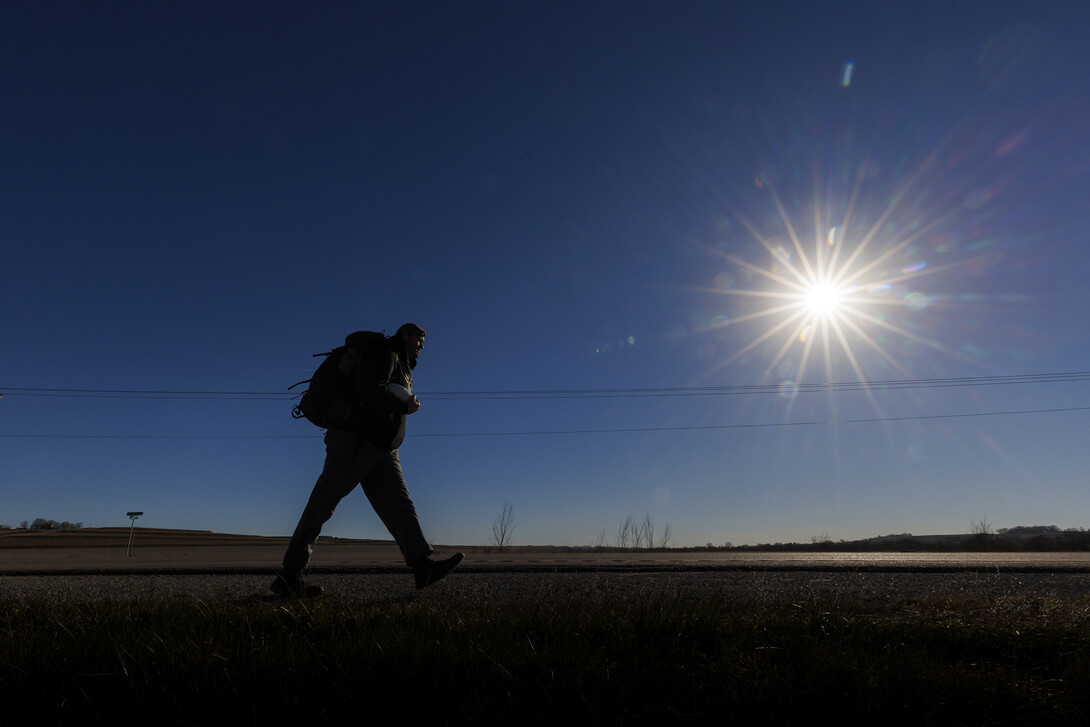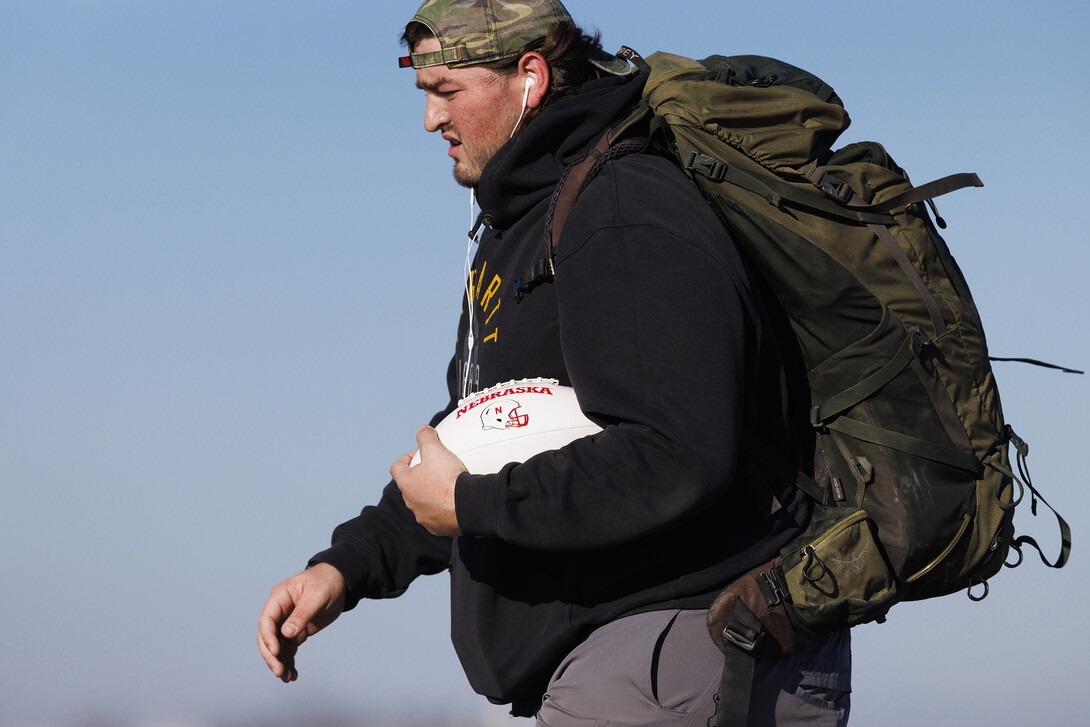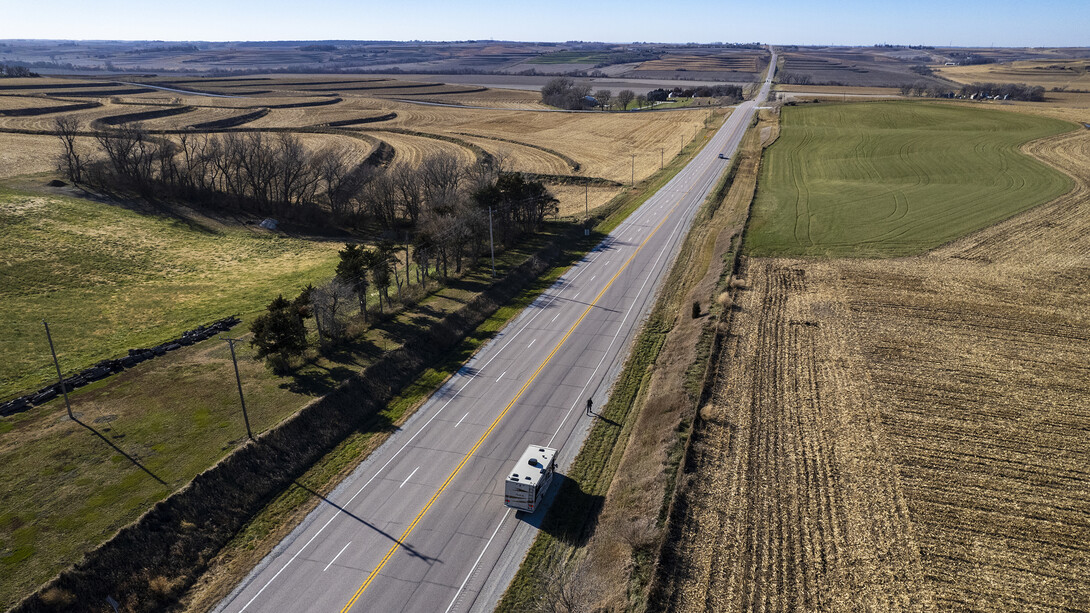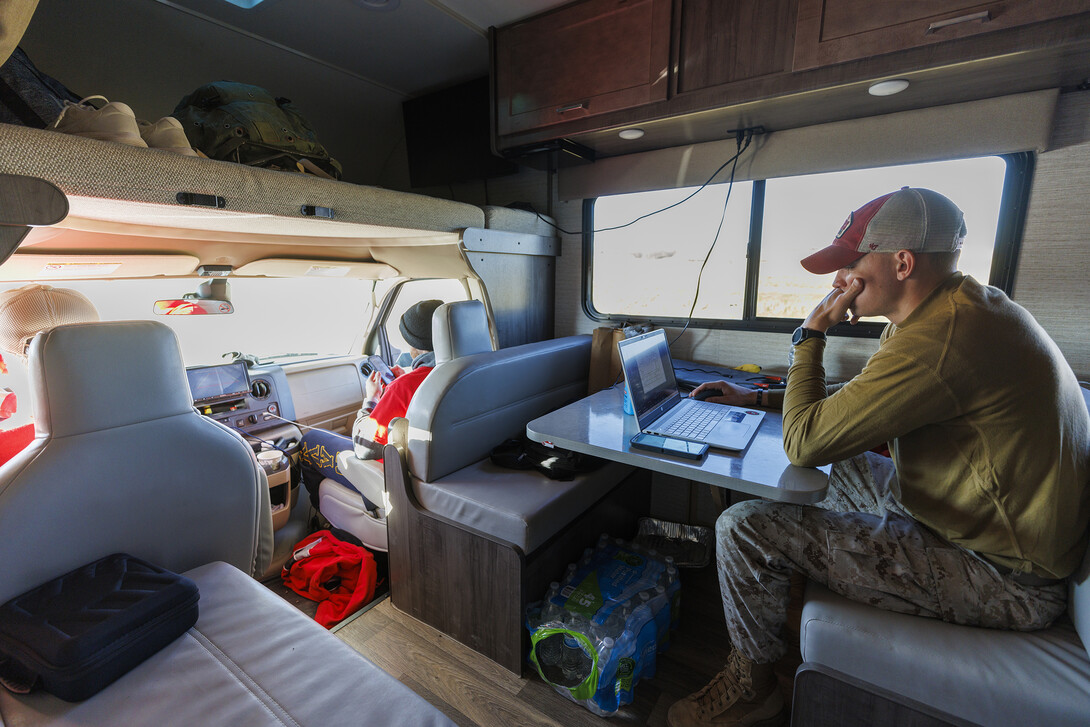
As Trevor Stephens felt a blister forming on his foot, he had a thought.
“I didn’t want to stop,” he said. “It was hurting, but I started thinking, what is this miniscule pain compared to what other people are going through? There are people going through way more physically and mentally.”
At the time, Stephens, a United States Marine Corps veteran and sophomore secondary education major at the University of Nebraska–Lincoln, was somewhere east of the Nebraska/Iowa border, closing in on Council Bluffs, and in the midst of logging more than 20 miles for the Things They Carry Ruck March. He carried 20 extra pounds of weight in a pack and volunteered to walk the 20-mile shifts — all to raise awareness for and to honor the 20 veterans lost to suicide each day.
“Realistically, veterans give their lives, whether it be overseas, or with the battles they have here at home, and it’s really important to honor and give homage to the people who’ve gone through that sacrifice,” Stephens said.

Despite the blister and feeling both physically and mentally fatigued, Stephens completed another 20-mile shift the next day.
“It’s always a mental check once you get out there,” he said. “I mean, when starting out, you’re super excited and taking part of this special event, but it starts to physically wear on you and affect you mentally after a few hours.”
This is the sixth year that student veteran groups from both Nebraska and the University of Iowa have completed the march. The 2021 journey began at Kinnick Stadium in Iowa City, Iowa, and ends at Memorial Stadium Nov. 26. The event closes with a presentation of the game ball — which is carried by marchers — to Nebraska Athletic Director Trev Alberts, prior to the Husker-Hawkeye gridiron match-up, known as the Heroes Game.
Like most of the student veterans participating, Stephens, of Council Bluffs, has personal connections to the epidemic claiming so many who have worn the cloth of our country.
“I’ve known some older guys and some around my age, too. Veteran suicide is a big deal,” he said. “It was important for me, a personal thing, to walk. And the route goes through my hometown, so I wanted to walk those miles. It should be me.”

For one of his shifts, Stephens was joined by Everett Bloom, a sophomore majoring in history and political science and veteran of the U.S. Navy. Bloom also walked several shifts and helped drive the pilot vehicle for the entire ruck march.
“This issue is personal to me,” Bloom said. “I’ve been in the military for four years, and I lost people close to me, fellow military members and friends to suicide. It was something that I really wanted to get involved with for them.”
It was by happenstance that Stephens learned of the ruck march before he was a student.
“Back in 2018, when I got out of the Marine Corps, I saw two people walking,” he said. “One was carrying an American flag and a Marine Corps flag, so I stopped to see what they were doing and they told me about it. I was planning on going to UNL, and I knew I would definitely be partaking in this.”

Stephens’ experience is similar to encounters the ruckers have each day, as passersby and community members inquire about why they are walking the highways.
“People stop and talk to us, and it definitely makes it more worth it — that’s why we’re here,” Stephens said. “People are wondering the reason why and we’re able to talk with them and raise that awareness, but then it also makes you feel good, because they’re giving us support, and saying, ‘Wow, what you’re doing is awesome, and you can do this.’ That boosts your confidence and keeps you going.”
Bloom said as the ruckers made it to each community, they were received with open arms.
“We’ve gotten a very warm welcome,” Bloom said. “In each of those towns, we’ve had a lot of people stopping to take pictures with us and speak to us about it. Just today, the mayor of Treynor (Iowa) met with us at the community center, and had a long conversation with us about our background and the journey ahead, and bought us lunch. He has three sons who are active duty military.”
As the march reached its last legs, Bloom was proud of what the team of ruckers had accomplished.
“We’re out her walking, from sun up to sun down, and our feet and backs and hips hurt, and it’s tough getting up and doing it every day, but it’s for a good cause and we’re all willing to sacrifice for it,” he said. “The enjoyable part is getting to talk with people along the way and raise awareness for something that’s a major issue for our veterans.”







